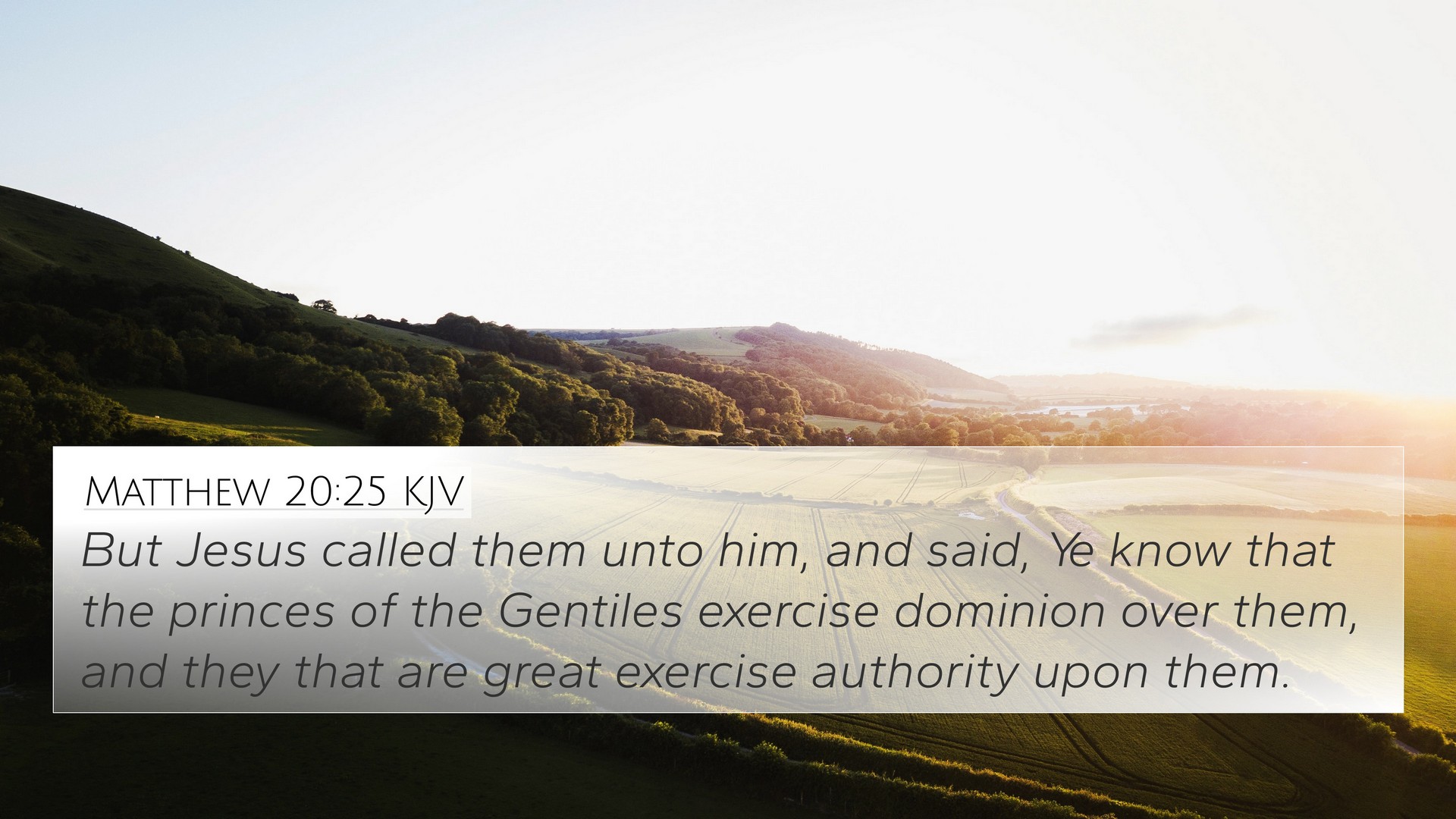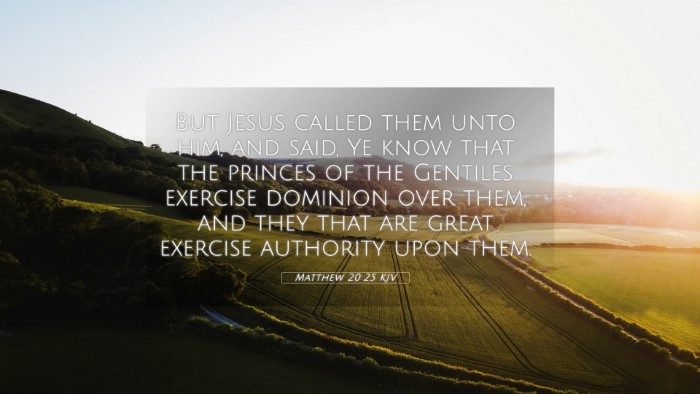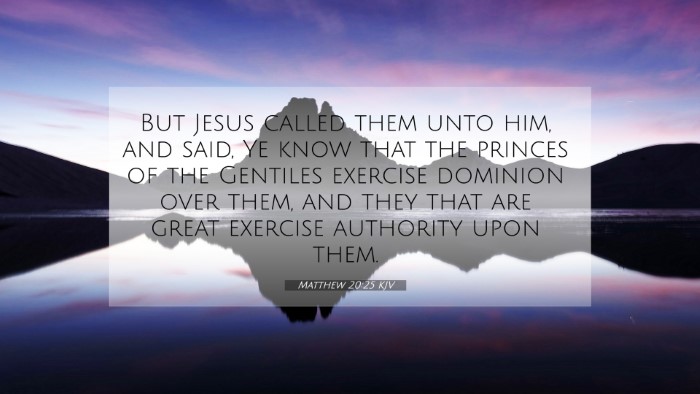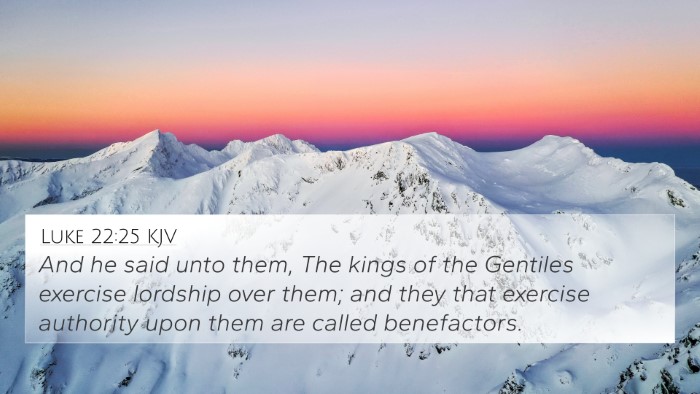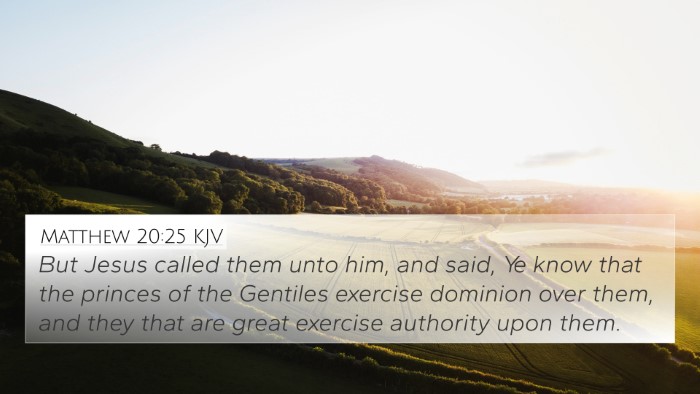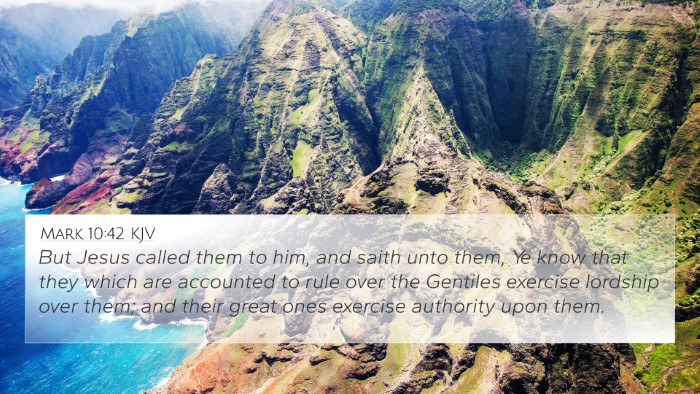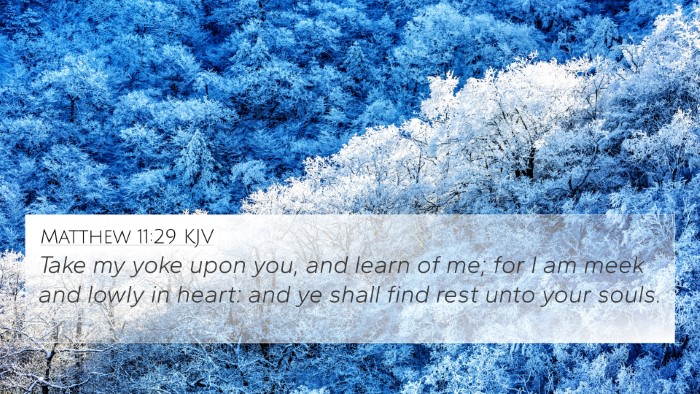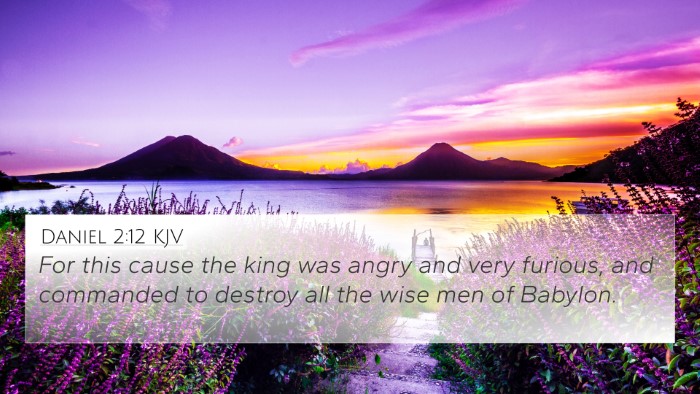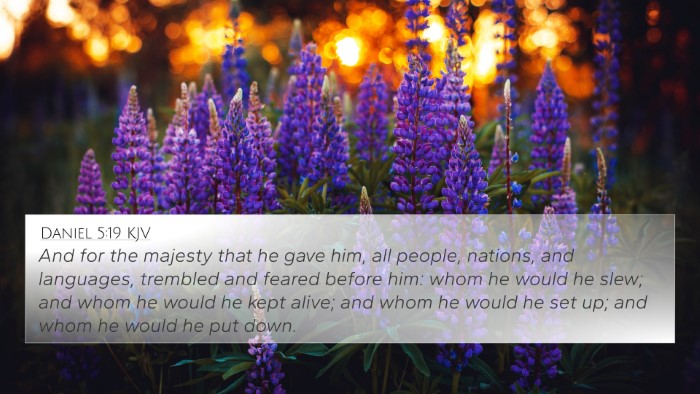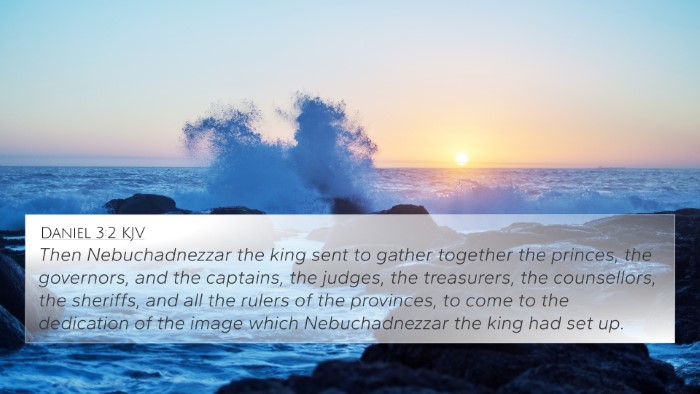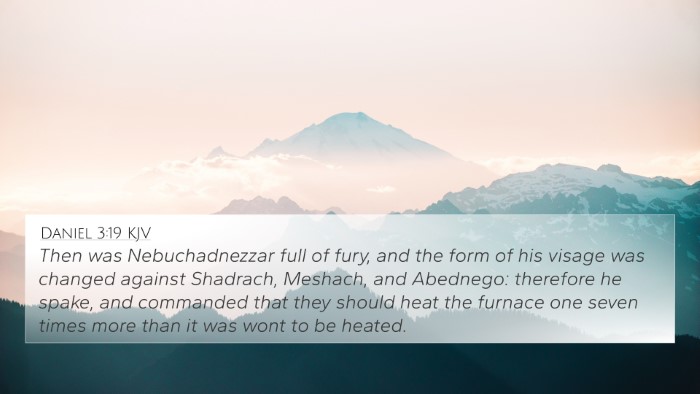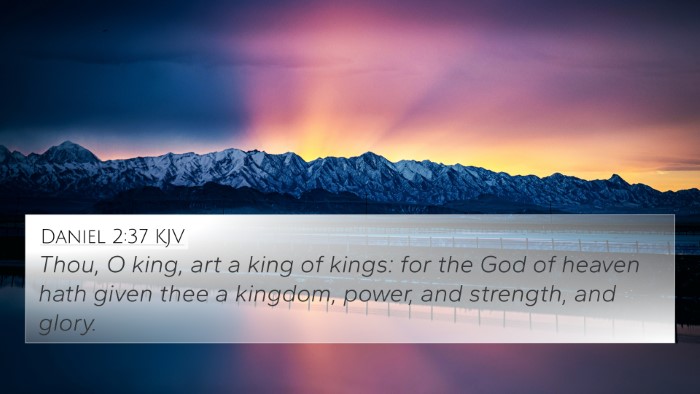Understanding Matthew 20:25
Bible Verse: Matthew 20:25 - "But Jesus called them to Him and said, 'You know that the rulers of the Gentiles lord it over them, and their great ones exercise authority over them.'"
This verse occurs during a discussion about greatness and leadership among Jesus’ followers. The context involves the request of the mother of James and John, who sought positions of honor for her sons in Jesus’ kingdom. Jesus uses this moment to teach a foundational truth about leadership and service in the Kingdom of God.
Commentary Insights
Matthew Henry
Matthew Henry elaborates on this verse by pointing out the contrast between worldly leadership and godly leadership. He emphasizes that Gentile rulers wield their authority in a domineering manner, often seeking to establish their power over others. In contrast, Jesus calls His disciples to a different model of leadership, one characterized by humility and servitude.
Henry also reflects on the implications of this for the disciples, urging them to forsake the desire for power and authority that mirrors worldly standards, highlighting that true greatness in the Kingdom transcends earthly status.
Albert Barnes
Albert Barnes provides a detailed examination of the statement made by Jesus about rulers. He explains that the authority exercised by worldly leaders is often accompanied by a spirit of oppression and arrogance. Barnes notes that such leadership contrasts with Christ's teachings, where the focus is on serving others rather than seeking dominance.
In his view, the true call of a leader is to seek to serve and uplift others, reinforcing the transformative message Jesus embodied—one that redefines greatness as selflessness and service.
Adam Clarke
Adam Clarke interprets this verse in light of the cultural understanding of leadership during Jesus’ time. He illustrates how the rulers of the Gentiles justify their power through authority and control. Clarke stresses that Jesus’ followers are invited to adopt a different mindset—one that embraces servitude as the pathway to true greatness in the community of believers.
Clarke's insights further emphasize that the Kingdom of God operates on principles distinct from worldly systems, where the first shall be last, and the last shall be first.
Cross-References
This verse connects with various other scriptures that enhance its meaning within Biblical teaching. Here are some notable cross-references:
- Mark 10:42-45: A parallel passage where Jesus reinforces the idea of servanthood as the greatest trait of a leader.
- Luke 22:25-27: Jesus again contrasts the lordly manner of the Gentiles with the servant leadership expected of His disciples.
- Philippians 2:5-7: Encourages followers to adopt the same mindset as Christ, who exemplified humility and servant leadership.
- Matthew 23:11-12: Jesus teaches that the greatest among them will be their servant, further clarifying His view on leadership.
- John 13:14-15: Demonstrates how Jesus washed His disciples' feet, providing a practical lesson in service.
- 1 Peter 5:2-3: Peter admonishes church leaders to shepherd the flock willingly and humbly, avoiding lording power over them.
- Romans 12:10: Calls believers to honor one another above themselves, further reinforcing the theme of service.
- Galatians 5:13: Encourages the use of freedom to serve one another in love, underscoring the biblical mandate for mutual service.
- James 4:10: "Humble yourselves before the Lord, and he will exalt you," linking humility and divine exaltation.
- Revelation 2:26: Describes the promise to the overcomers, highlighting the divine recognition of those who serve faithfully.
Thematic Connections
Matthew 20:25 and its surrounding context foster deeper understanding through thematic connections within Scripture. It serves as a pivotal point for discussions about:
- Leadership: A redefined perspective of what it means to lead in accordance with Christ's example.
- Service: Understanding service as an integral aspect of Christian vocation, as opposed to a means of gaining control.
- Humility: The necessity of humility in the life of a believer, reflecting on how humility leads to exaltation in God’s Kingdom.
- Community: Building a community where members serve one another as a reflection of Christ’s love and sacrifice.
Tools for Bible Cross-Referencing
To further explore the depth of Matthew 20:25 and uncover additional connections, consider utilizing various tools:
- Bible Concordance: Instruments for identifying specific words and their occurrences throughout Scripture.
- Bible Cross-Reference Guide: Resources that streamline studying by pointing out related verses and themes.
- Cross-Reference Bible Study: Methods by which links between passages are examined for deeper understanding.
- Bible Chain References: Techniques to trace thematic or narrative links throughout the Biblical text.
Conclusion
Ultimately, Matthew 20:25 invites believers to embrace a transformative leadership model that is antithetical to worldly notions of power and authority. Through careful examination of this verse and its connections, one discovers not only Jesus’ call to humble servitude but also the broader implications for community, leadership, and what it means to follow Christ genuinely. By utilizing cross-referencing as an interpretative tool, readers gain a richer, thematic understanding of the holistic message of the Gospel.
